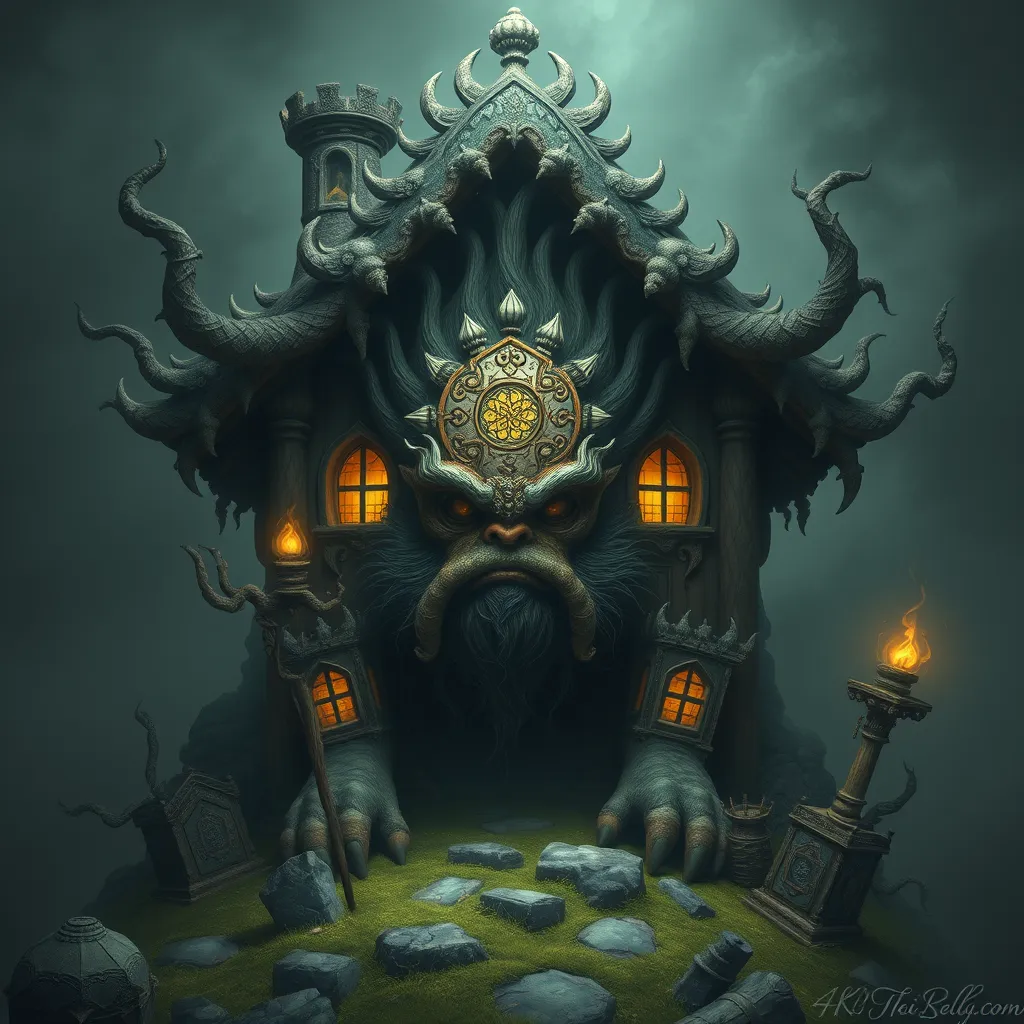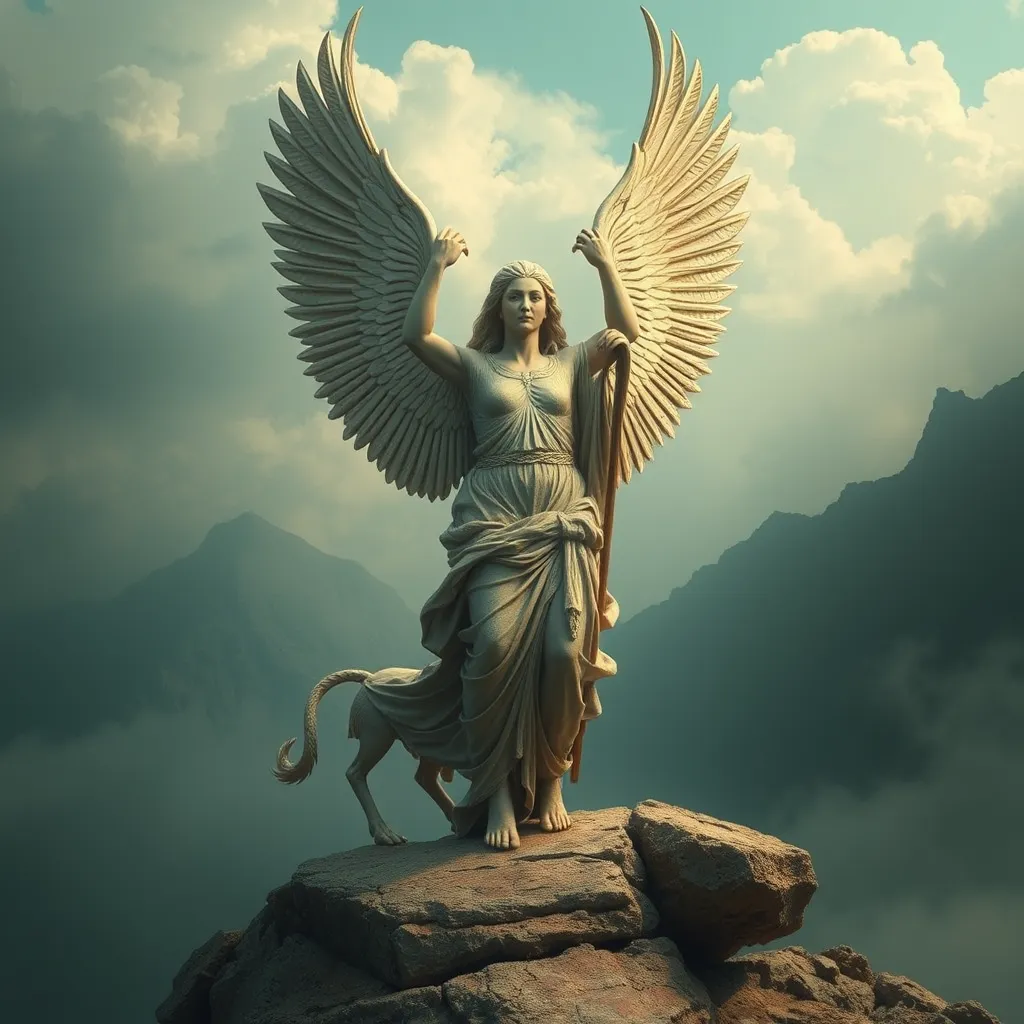The Domovoi: The House Troll and the Spirit of Home
I. Introduction
The Domovoi is a fascinating figure in Slavic folklore, often referred to as a house spirit or household guardian. This creature embodies the essence of home, serving as both protector and guide for families. The importance of the Domovoi in Slavic culture cannot be overstated; it reflects the deep-rooted beliefs regarding domestic life, family harmony, and the spiritual connection people have with their living spaces.
This article will explore the characteristics, roles, and cultural significance of the Domovoi, shedding light on its historical origins, physical traits, behavioral patterns, and its place in modern interpretations of folklore.
II. Historical Origins of the Domovoi
The Domovoi’s origins can be traced back to early Slavic beliefs, where household spirits were considered guardians of the home. These spirits were thought to be the souls of ancestors, serving as protectors of family members and their dwelling places.
Over the centuries, the portrayal of the Domovoi evolved, influenced by changing cultural dynamics and the incorporation of various traditions. In some regions, the Domovoi became depicted more as a mischievous creature, while in others, it retained its role as a benevolent guardian.
Regional variations play a significant role in the understanding of the Domovoi. For instance:
- In some parts of Russia, the Domovoi is depicted as a small, bearded man.
- In Ukraine, it might be portrayed as a more animalistic figure.
- In Belarus, the Domovoi is sometimes seen as a protective spirit that resides beneath the stove.
III. Physical Characteristics of the Domovoi
Common descriptions of the Domovoi often depict it as a small, humanoid creature, typically no taller than a human’s knee. It is usually described as having a shaggy appearance, with features reminiscent of both animals and humans.
However, variations in appearance exist across different cultures. In some traditions, the Domovoi may be portrayed as:
- A small old man with a long beard.
- A spirit resembling a cat or dog, reflecting the household pets’ significance in family life.
- A shadowy presence, emphasizing the mysterious nature of household spirits.
The symbolic meanings behind the Domovoi’s appearance often relate to its role as a protector of the home. Its shaggy fur symbolizes warmth and comfort, while its small stature represents its intimate connection to domestic life.
IV. The Role of the Domovoi in the Household
The Domovoi is primarily seen as the protector of the home and family. It is believed to influence domestic harmony and well-being, ensuring that the household runs smoothly. Families would often leave offerings of bread, milk, or other food items to appease the Domovoi and encourage its goodwill.
Rituals and practices to honor the Domovoi include:
- Keeping the home clean and tidy to show respect.
- Speaking kindly about the Domovoi, treating it as a member of the family.
- Celebrating traditional holidays with special attention to household spirits.
V. The Domovoi’s Behavior and Attitude
The behavior of the Domovoi can vary widely, characterized by both benevolence and mischief. While it is predominantly seen as a helpful spirit, there are instances where it may express its displeasure if the household is not maintained properly or if its presence is ignored.
Common descriptions of the Domovoi’s temperament include:
- Kind and protective: It may assist in household chores, such as keeping the home warm.
- Mischievous: It might hide objects or create minor disturbances to remind the family of its presence.
This duality creates a balance between respect and fear in household interactions, where families must acknowledge the Domovoi’s power while also fostering a friendly relationship.
VI. Cultural Significance and Modern Interpretations
The Domovoi remains a significant figure in contemporary literature and media, often symbolizing the ideals of home and family. In modern Slavic cultures, there is a revival of traditional beliefs, with many families still engaging in rituals to honor the Domovoi and maintain a connection with their heritage.
In popular culture, the Domovoi is frequently represented in:
- Children’s books and fairy tales, emphasizing its role as a guardian.
- Films and television shows, where it may appear as a quirky, helpful character.
As a symbol of home and family values, the Domovoi serves as a reminder of the importance of nurturing domestic spaces and familial bonds in a rapidly changing world.
VII. Comparisons with Other Household Spirits
The Domovoi shares similarities with other cultural house spirits, such as the Brownies of English folklore and the Lares of Roman mythology. However, it also possesses unique characteristics that define its place in Slavic mythology.
Key comparisons include:
- Brownies: Typically benevolent household spirits known for their helpfulness, similar to the Domovoi’s protective nature.
- Lares: Roman household deities that also protect the home, yet they are more formalized within religious practices.
The Domovoi stands out as a distinctly Slavic archetype of household guardians, deeply intertwined with cultural traditions and the notion of family lineage.
VIII. Conclusion
In summary, the Domovoi holds a significant place in both folklore and modern culture, reflecting the values of home, family, and domestic harmony. Its role as a protector and guide emphasizes the importance of household spirits in maintaining cultural identity and traditions.
As societies evolve, the relevance of the Domovoi continues to endure, reminding us of the deeper connections we have with our homes and the spirits that inhabit them. Embracing the legacy of the Domovoi allows individuals to appreciate the richness of their cultural heritage and the timeless values associated with family life.



